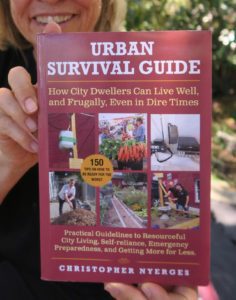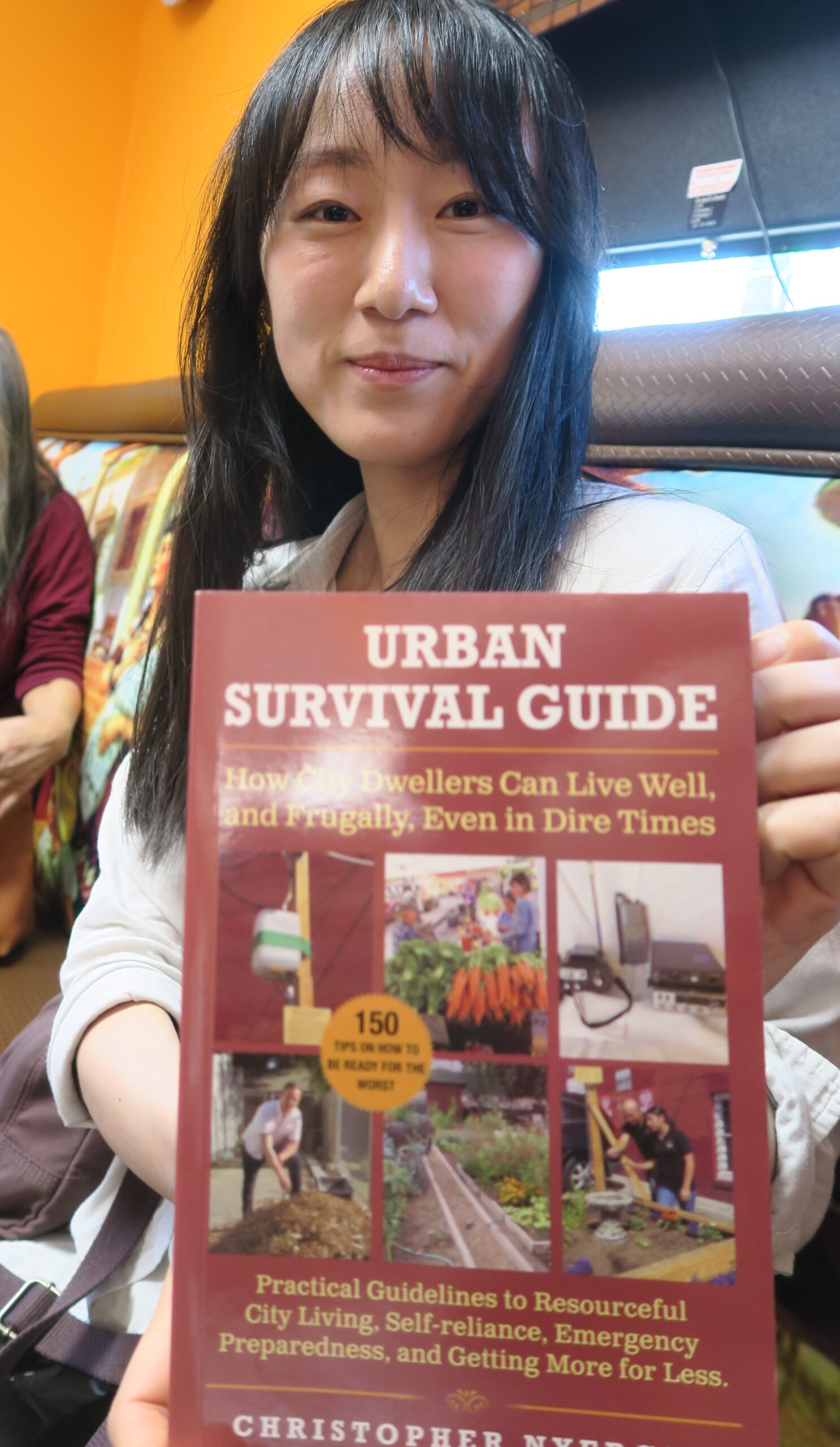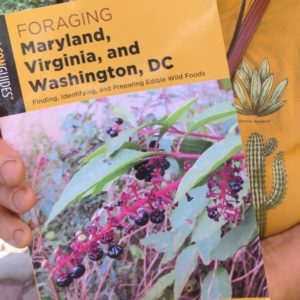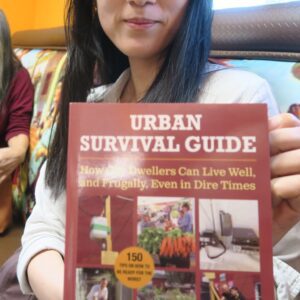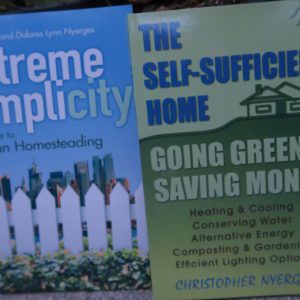Description
A GREAT ADDITION TO YOUR REFERENCE LIBRARY!
“URBAN SURVIVAL GUIDE: How City Dwellers Can Live Well, and Frugally, Even in Dire Times,” the latest by Christopher Nyerges. 280 pages, full color, $19.99
This book is full of practical guidelines for resourceful city living, self-reliance, emergency preparedness, and getting more for less.
There’s a lot packed into this new book by Nyerges.
The book begins with two aspects of urban self-reliance that are generally not considered, but are critical: First, the way the city is developed and grown impacts your ability to be self-reliant. Maybe you can do something about that, maybe you can’t, but at least you’ll be able to consider the aspects that make even the urban setting very uplifting — or a hell! Then, the book addresses that the way a house is built can make it an energy hog, or make it very energy efficient, and Nyerges discusses the many ways to retrofit existing houses so they’re far more efficient. These include some very basic concepts such as roof overhangs that give more shade, painting the roof white to reflect summer heat, and insulating the walls and ceilings.
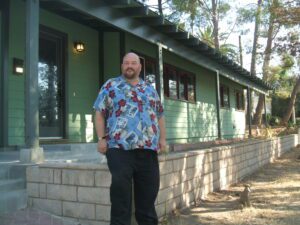
Next, the book addresses the key highlights in the areas of WATER (storing, purifying, finding it, collecting rain). There are some practical methods for low-tech rain collection and filtering, as well as the simple basics of letting used water go into your garden. The book addresses FOOD — not just growing it, but trading food, finding local food, learning about food that already grows all over your neighborhood. The book includes a detailed tutorial for raising your own oyster mushrooms from old cardboard and used coffee grounds. Matt Heidrich shared how he learned how to take discarded cardboard — a wood product essentially — and infuse it with the oyster mushroom spawn, along with old coffee grounds, and produce a steady supply of these delicious mushrooms.
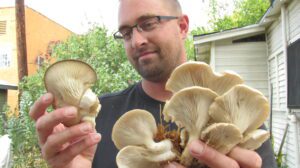
There is a chapter about all the ways to cook your food when conventional fuels are unavailable, such as various low-cost wood stoves, and the details of making your own solar oven. Yes, there are plenty of solar ovens available today, and though the author has one of those, he also shares how to make a low-cost workable solar oven.
The HYGIENE section includes a detailed tutorial on making your own soap, as well as a look at natural plants that actually produce usable soap. That’s right! There are many plants that you could grow in your own yard — such as a native lilac (Ceonothus spp.) — whose flowers and fruits will provide you with soap!
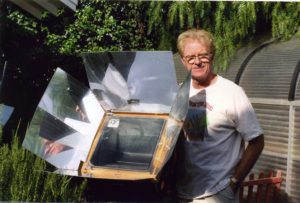
The HEALTH section is a real eye-opener, with a look at the healing practices of Dr. James Adams, author of “Healing with Medicinal Plants of the West,” and his unique methods which provide an alternative to opioids. Dr. Adams spent decades learning about traditional uses of herbs for healing, and for reducing pain. He’s on a mission to get people off opioids — which ultimately do not work anyway — and using certain herbs as a safe alternative. We give the details in this book.
There’s an interview with Enrique Villasenor, the ambassador of the prickly pear cactus who promote this cactus for a complete food and a remarkable medicine. This section include details of a bath therapy regimen for health and longevity, how to use Aloe, and the Vinegar of Four Thieves.

There’s a section on living better with less use of Utilities, largely based on the writings of minimalist Marshall Greenwood, and another severe minimalist, Richard E. White, who made a profession of living better with less. There is a section on alternate communication systems, and another chapter on better uses of resources.
OTHER CONSIDERATIONS includes The Four Illusions of Money, and how we waste our lives when we live for money, rather than using money to live better.
AND LOTS MORE! Cody Lawry always tells us that this is like three books in one, covering self-reliance, survival, health, economics, civic planning, and more. A remarkable book.
280 pages, full color, $19.99
CHAPTERS:
Chapter 1: THE CITY: Is there an Ideal Form?
Chapter 2: SHELTER: Making our Personal Living Spaces more efficient.
Chapter 3: WATER: The Key to Life.
Chapter 4: FOOD: Growing your own, and Storage Principles.
Chapter 5: COOKING your meals with alternate fuels.
Chapter 6: GENERAL HYGIENE: Toilet, Bathing, Washing Soaps, etc.
Chapter 7: INTEGRAL HEALTH: Some first aid and natural healing considerations.
Chapter 8: UTILITIES: Living Better with Less.
Chapter 9: ALTERNATE COMMUNICATIONS.
Chapter 10: BETTER USE OF RESOURCES.
Chapter 11: OTHER CONSIDERATIONS (ECONOMIC and otherwise).
Chapter 12: A SIX-STEP PLAN TO ADDRESS CLIMATE CHANGE.